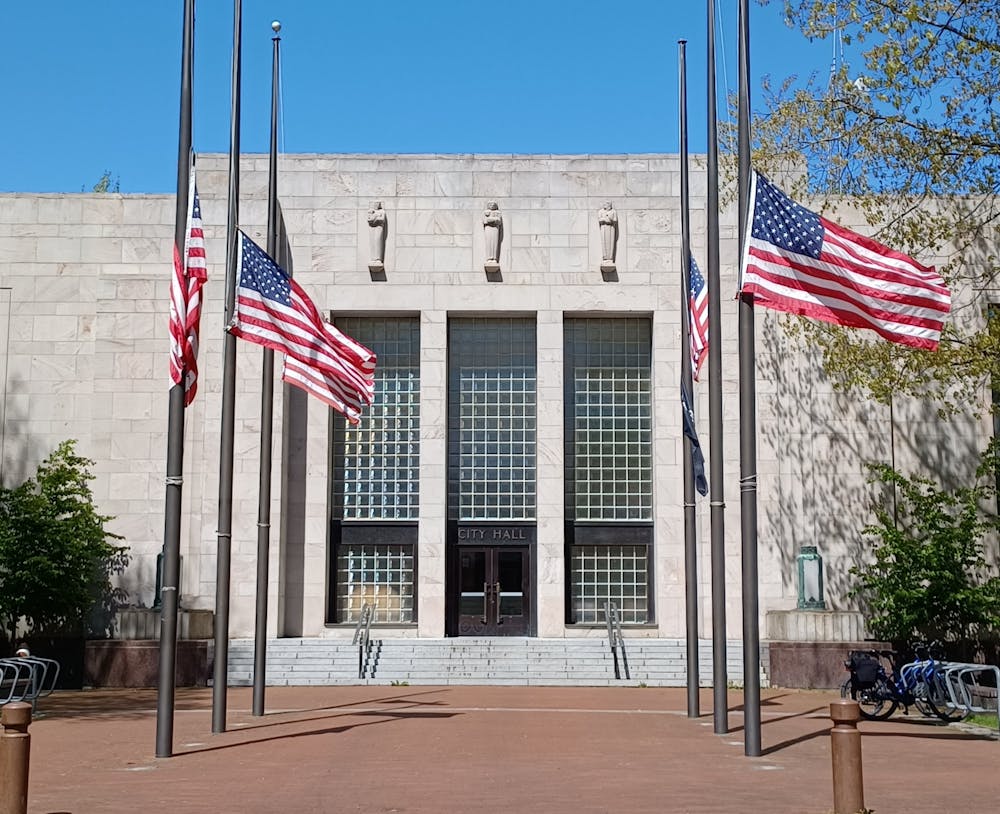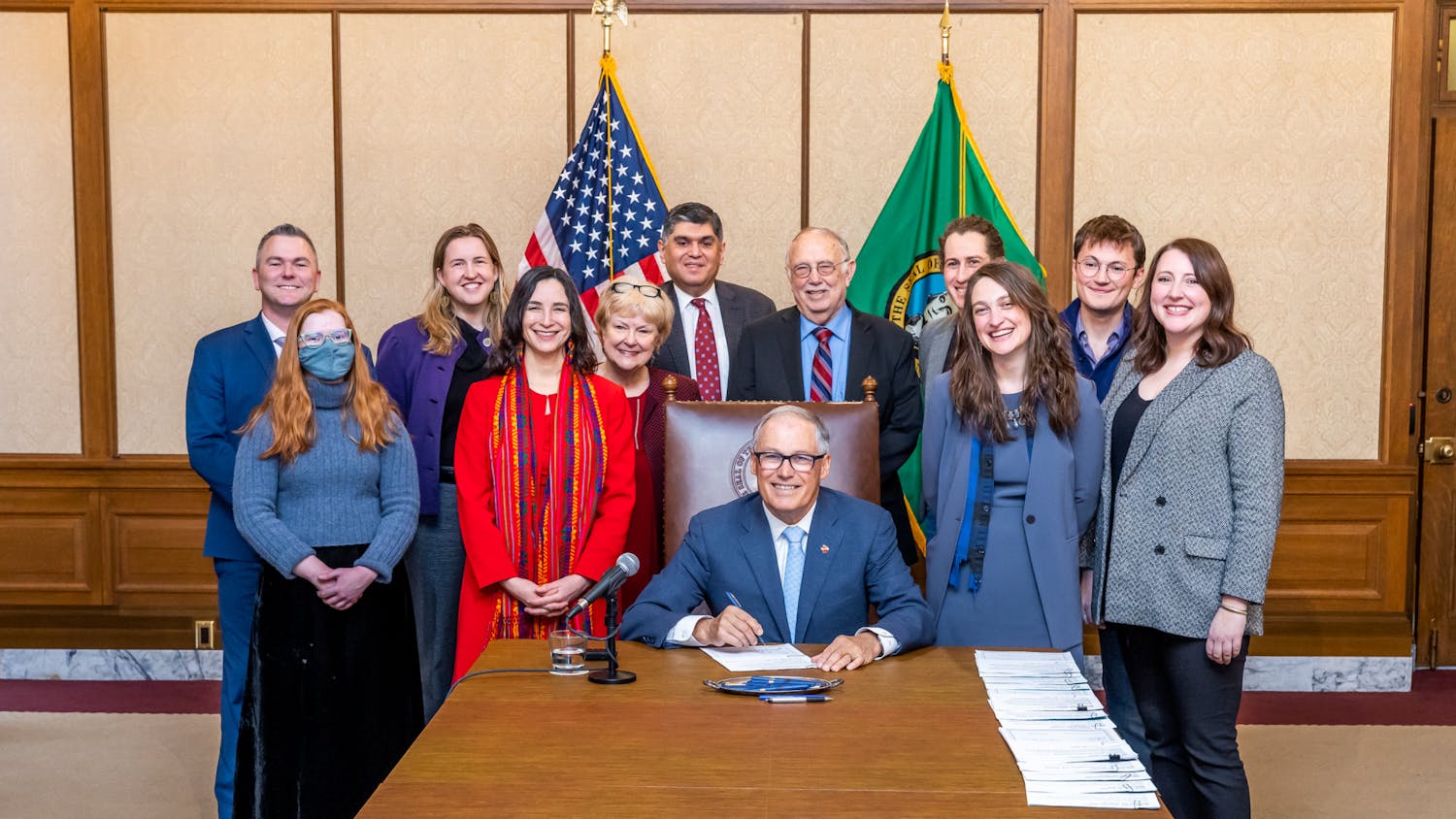Students from Western Washington University will lobby the Bellingham City Council and Whatcom County Council at Bellingham City Hall about policies to address student needs at Local Lobby Day on May 15.
Participants will advocate for the Associated Students Office of Civic Engagement’s legislative agenda, which includes policy suggestions for addressing affordable housing, mental health resources, intercounty transportation and climate change. This year’s Local Lobby Day marks the event’s first in-person return since the COVID-19 pandemic.
“I was inspired to join in on Local Lobby Day because I wanted the opportunity to become more invested in local politics,” said Malachi Phillips, a second-year political science major at Western. “I’ve always been interested in politics, but I’ve never invested time and research into local politics until this past year.”
Phillips said he served as an at-large voting member of the OCE’s Legislative Affairs Council, the organization that drafts the legislative agenda for annual student lobbying events. The Legislative Affairs Council surveys students to learn their priorities and needs, which form the basis for the agenda.
The OCE provides mandatory training for Local Lobby Day participants the day before the event to educate them on the agenda and effective lobbying strategies.
“The most important part of the training for Local Lobby Day is just helping students frame their personal experiences to talk about issues,” said Teagan Hudson, the OCE’s local issues coordinator. “[We encourage] people to talk about the ways that the issues come up in their daily lives.”
Hudson said the training also familiarizes students with recommended policy in the agenda, facts about the issues and the ways other local governments have dealt with problems similar to the ones facing the region.
Students will address local lawmakers in groups of three or four on a topic of their choice from the agenda.
It is important for councilmembers to listen to student priorities and goals, according to Lisa Anderson, the Bellingham City Councilmember for Ward Five, which encompasses Western’s campus.
“From there address perhaps what we have already accomplished, what we have in the works that might dovetail what those are, or sometimes it might be educating, like this is really a state legislator situation,” Anderson said.
Anderson said the City Council is already working to address some concerns that students have brought up with them in past years.
“I’ve been pushing to have inclusionary zoning because I think our city is at the point now that every housing project has to have permanent affordable housing,” Anderson said.
The Local Lobby Day agenda states that it supports the city’s efforts to implement inclusionary zoning, which requires a set number of newly constructed housing units to be designated for residents of low to middle incomes. The agenda also called for the city to fund public “social housing” developments for people with mixed incomes.
On the mental health front, the city has implemented the Alternative Response Team, which allows behavioral health professionals to respond to emergency 911 calls that may be coming from people in a mental health crisis. Anderson said that outreach to these people can bring down the total number of calls, allowing for more efficient emergency response.
The student agenda supports the city and county’s Alternative Response Team, but further advocates for a separate phone line for mental health emergencies so that residents feel safer when calling for help. Their efforts come after the City Council passed an ordinance to criminalize public drug use.
Hudson said Local Lobby Day generates a lower turnout of students than annual state lobbying events like Western Lobby Day and Western Intersectional Lobby Day in Olympia.
Paul Chen, an associate professor of political science at Western, said local politicians are more accessible and receptive to constituents’ needs than state and federal legislators.
“Politics is local, and in that sense, what’s most relevant for us, what we care about the most is the stuff that affects us the most, which is where we live,” Chen said. “These council members live in our community and in just a very physical way, the space between us is much closer than the space between us and even Olympia.”
Hudson said local officials meet directly with their constituents, unlike state legislators who often have their staff meet with constituents on their behalf. Participants at Local Lobby Day can speak directly with city and county council members for 30 minutes instead of the 15 minutes allotted for lobbyists to speak with state legislators.
Chen said young people are less politically engaged than older Americans because they experience lower political efficacy, which means they do not feel they can spark change.
While 76% of people between ages 65 and 74 voted during the November 2020 presidential election, only 51.4% of 18- to 24-year-olds did the same, according to the U.S. Census Bureau.
“I would encourage students to just sit in on a city council meeting,” Chen said. “That’s where the decisions are being made.”
Hudson said the OCE promoted the event by putting up posters, tabling on campus, listing it on the Western Involvement Network site and posting about it on the OCE Instagram page.
While the deadline to register for Local Lobby Day registration has passed, Phillips said students can get involved by filling out the surveys that the AS Legislative Affairs Council uses to draft the agenda or becoming a member of the organization.
“I hope that students who participate feel like they were heard and that they have an opportunity to share what they feel like is important to them,” Hudson said. “And I hope that the experiences students share will be impactful to officials.”
Mia Limmer-Lai (she/her) is one of two copy editors for The Front this quarter. She is a second-year environmental studies and journalism student at Western with a minor in honors interdisciplinary studies. In her free time, she enjoys reading books and listening to punk music. You can reach her at mianlimmerlai.thefront@gmail.com.






